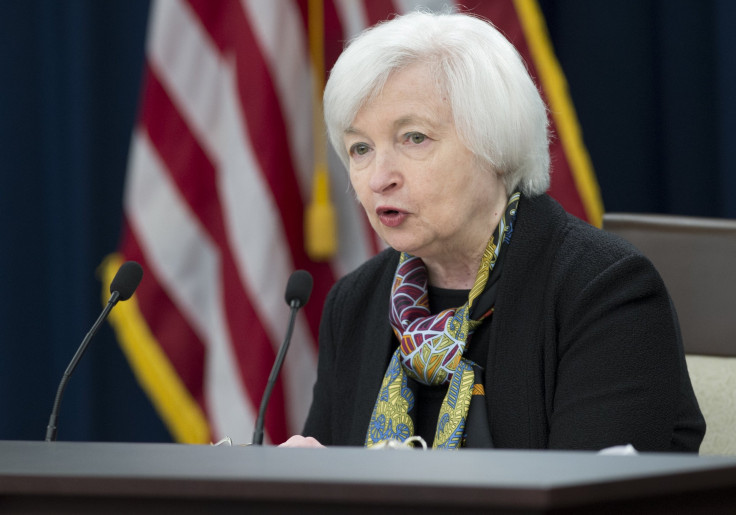US Federal Reserve March Meeting Minutes To Shed Light On Likely Path Of Monetary Policy

When the U.S. Federal Reserve Chairwoman Janet Yellen emerged from her meeting with Fed policymakers on March 16, she voiced a decidedly dovish view, moderating expectations of further rate hikes in April, or even in June. On Wednesday, when the minutes of the policy meeting are released, investors and analysts would peruse it for more details about the Federal Open Market Committee’s views on global economy and interest rate projections.
A key point to look out for would be the FOMC’s views on inflation, which has been, and will remain, a crucial area of concern for policymakers while mulling further rate hikes. The core personal consumption expenditure price index — the Fed’s preferred inflation gauge — held steady at 1.7 percent in February, below the central bank’s 2 percent target.
Inflation has undershot the Fed’s annual target for nearly four years now, and the central bank expects it to remain low, primarily because of the decline in commodity and oil prices. The minutes, when they are released Wednesday, are likely to shed further light on the internal debate within the FOMC regarding the inflation outlook and how it would impact rate hike decisions.
“In determining the timing and size of future adjustments to the target range for the federal funds rate, the Committee will assess realized and expected economic conditions relative to its objectives of maximum employment and 2 percent inflation,” the FOMC said in a statement released following last month’s meeting. “This assessment will take into account a wide range of information, including measures of labor market conditions, indicators of inflation pressures and inflation expectations, and readings on financial and international developments.”
Insofar as these “international developments” are concerned, China’s economic slowdown and prevailing low oil prices are likely to figure prominently in the minutes. For instance, last week, Yellen specifically cited these two factors as reasons to “proceed cautiously” while adjusting monetary policy.
The ongoing global turmoil, especially in emerging markets, has adversely impacted U.S. manufacturing and exports, and has also strengthened the dollar, which is further hurting exports.
“She's [Yellen's] really worried about international events and worried about financial conditions. She's worried about the dollar,” Jim Caron, a fixed income portfolio manager at Morgan Stanley Investment Management, told CNBC. “I think she realizes it's the feedback from a global perspective that the U.S. economy gets and the global economy in general. When the dollar's too strong, it's pretty negative.”
Another area the minutes would highlight is dissent within the FOMC. In March, Kansas City Fed President Esther George was the only one who adopted a hawkish tone, calling for an immediate 25 basis points hike.
Not only would the minutes offer a more detailed explanation of her decision, they would also help investors gauge the support Yellen has within the committee and whether there are any other dissenting voices.
© Copyright IBTimes 2024. All rights reserved.





















